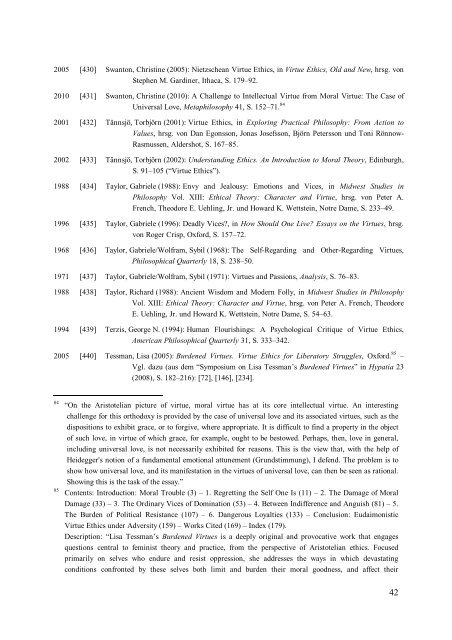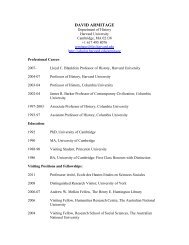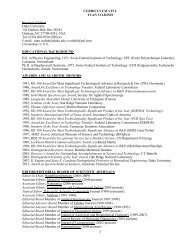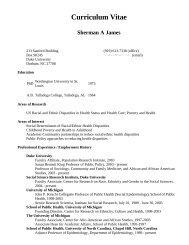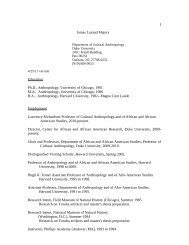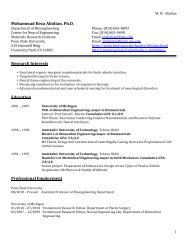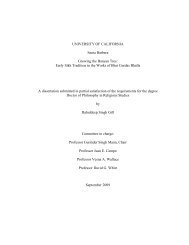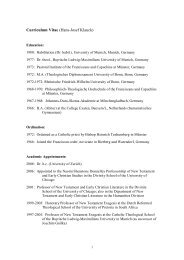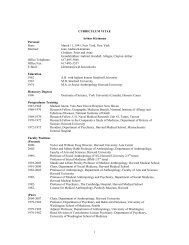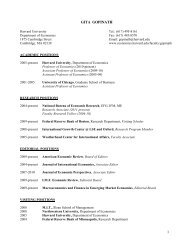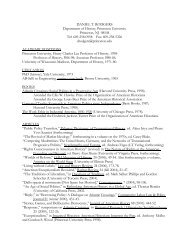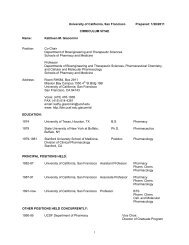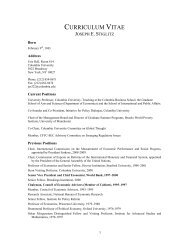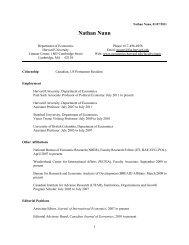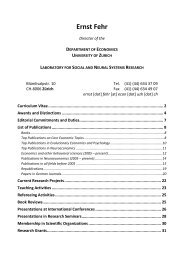2005 [430] Swant<strong>on</strong>, Christine (2005): Nietzschean <strong>Virtue</strong> Ethics, in <strong>Virtue</strong> Ethics, Old and New, hrsg. v<strong>on</strong>Stephen M. Gardiner, Ithaca, S. 179–92.2010 [431] Swant<strong>on</strong>, Christine (2010): A Challenge to Intellectual <strong>Virtue</strong> from Moral <strong>Virtue</strong>: The Case ofUniversal Love, Metaphilosophy 41, S. 152–71. 842001 [432] Tännsjö, Torbjörn (2001): <strong>Virtue</strong> Ethics, in Exploring Practical Philosophy: From Acti<strong>on</strong> toValues, hrsg. v<strong>on</strong> Dan Eg<strong>on</strong>ss<strong>on</strong>, J<strong>on</strong>as Josefss<strong>on</strong>, Björn Peterss<strong>on</strong> und T<strong>on</strong>i Rönnow-Rasmussen, Aldershot, S. 167–85.2002 [433] Tännsjö, Torbjörn (2002): Understanding Ethics. An Introducti<strong>on</strong> to Moral Theory, Edinburgh,S. 91–105 (“<strong>Virtue</strong> Ethics”).1988 [434] Taylor, Gabriele (1988): Envy and Jealousy: Emoti<strong>on</strong>s and Vices, in Midwest Studies inPhilosophy Vol. XIII: Ethical Theory: Character and <strong>Virtue</strong>, hrsg. v<strong>on</strong> Peter A.French, Theodore E. Uehling, Jr. und Howard K. Wettstein, Notre Dame, S. 233–49.1996 [435] Taylor, Gabriele (1996): Deadly Vices?, in How Should One Live? Essays <strong>on</strong> the <strong>Virtue</strong>s, hrsg.v<strong>on</strong> Roger Crisp, Oxford, S. 157–72.1968 [436] Taylor, Gabriele/Wolfram, Sybil (1968): The Self-Regarding and Other-Regarding <strong>Virtue</strong>s,Philosophical Quarterly 18, S. 238–50.1971 [437] Taylor, Gabriele/Wolfram, Sybil (1971): <strong>Virtue</strong>s and Passi<strong>on</strong>s, Analysis, S. 76–83.1988 [438] Taylor, Richard (1988): Ancient Wisdom and Modern Folly, in Midwest Studies in PhilosophyVol. XIII: Ethical Theory: Character and <strong>Virtue</strong>, hrsg. v<strong>on</strong> Peter A. French, TheodoreE. Uehling, Jr. und Howard K. Wettstein, Notre Dame, S. 54–63.1994 [439] Terzis, George N. (1994): Human Flourishings: A Psychological Critique of <strong>Virtue</strong> Ethics,American Philosophical Quarterly 31, S. 333–342.2005 [440] Tessman, Lisa (2005): Burdened <strong>Virtue</strong>s. <strong>Virtue</strong> Ethics for Liberatory Struggles, Oxford. 85 –Vgl. dazu (aus dem “Symposium <strong>on</strong> Lisa Tessman’s Burdened <strong>Virtue</strong>s” in Hypatia 23(2008), S. 182–216): [72], [146], [234].8485“On the Aristotelian picture of virtue, moral virtue has at its core intellectual virtue. An interestingchallenge for this orthodoxy is provided by the case of universal love and its associated virtues, such as thedispositi<strong>on</strong>s to exhibit grace, or to forgive, where appropriate. It is difficult to find a property in the objectof such love, in virtue of which grace, for example, ought to be bestowed. Perhaps, then, love in general,including universal love, is not necessarily exhibited for reas<strong>on</strong>s. This is the view that, with the help ofHeidegger's noti<strong>on</strong> of a fundamental emoti<strong>on</strong>al attunement (Grundstimmung), I defend. The problem is toshow how universal love, and its manifestati<strong>on</strong> in the virtues of universal love, can then be seen as rati<strong>on</strong>al.Showing this is the task of the essay.”C<strong>on</strong>tents: Introducti<strong>on</strong>: Moral Trouble (3) – 1. Regretting the Self One Is (11) – 2. The Damage of MoralDamage (33) – 3. The Ordinary Vices of Dominati<strong>on</strong> (53) – 4. Between Indifference and Anguish (81) – 5.The Burden of Political Resistance (107) – 6. Dangerous Loyalties (133) – C<strong>on</strong>clusi<strong>on</strong>: Eudaim<strong>on</strong>istic<strong>Virtue</strong> Ethics under Adversity (159) – Works Cited (169) – Index (179).Descripti<strong>on</strong>: “Lisa Tessman’s Burdened <strong>Virtue</strong>s is a deeply original and provocative work that engagesquesti<strong>on</strong>s central to feminist theory and practice, from the perspective of Aristotelian ethics. Focusedprimarily <strong>on</strong> selves who endure and resist oppressi<strong>on</strong>, she addresses the ways in which devastatingc<strong>on</strong>diti<strong>on</strong>s c<strong>on</strong>fr<strong>on</strong>ted by these selves both limit and burden their moral goodness, and affect their42
2008 [441] Tessman, Lisa (2008): Reply to Critics, Hypatia 23, S. 205–16. 86 – Zu [72], [146], [234].2006 [442] Tiberius, Valerie (2006): How to Think About <strong>Virtue</strong> and Right, Philosophical Papers 35, S.247–265. 87 – Zu [220].1994 [443] Tierney, Nathan L. (1994): Imaginati<strong>on</strong> and Ethical Ideals. Prospects for Unified Philosophicaland Psychological Understanding, Albany, S. 129–35 (“<strong>Virtue</strong> Ethics Rec<strong>on</strong>sidered”).2002 [444] Timm<strong>on</strong>s, Mark (2002): Moral Theory. An Introducti<strong>on</strong>, Lanham, S. 211–43 (“<strong>Virtue</strong> Ethics”).2006 [445] T<strong>on</strong>er, Christopher (2006): The Self-Centredness Objecti<strong>on</strong> to <strong>Virtue</strong> Ethics, Philosophy 81, S.595–618. 881986 [446] Trianosky, Gregory (1986): Supererogati<strong>on</strong>, Wr<strong>on</strong>gdoing, and Vice: On the Aut<strong>on</strong>omy of theEthics of <strong>Virtue</strong>, Journal of Philosophy 83, S. 26–40. Wiederabgedruckt in EthicalTheory, hrsg. v<strong>on</strong> James Rachels, Oxford 1998, S. 454–69.1988 [447] Trianosky, Gregory (1988): <strong>Virtue</strong>, Acti<strong>on</strong> and the Good Life: A Theory of the <strong>Virtue</strong>s, Pacific868788possibilities of flourishing. She describes two different forms of “moral trouble” prevalent under oppressi<strong>on</strong>.The first is that the oppressed self may be morally damaged, prevented from developing or exercising someof the virtues; the sec<strong>on</strong>d is that the very c<strong>on</strong>diti<strong>on</strong>s of oppressi<strong>on</strong> require the oppressed to develop a set ofvirtues that carry a moral cost to those who practice them – traits that Tessman refers to as “burdenedvirtues.” These virtues have the unusual feature of being disjoined from their bearer’s own well being.Tessman’s work focuses <strong>on</strong> issues that have been missed by many feminist moral theories, and her use ofthe virtue ethics framework brings feminist c<strong>on</strong>cerns more closely into c<strong>on</strong>tact with mainstream ethicaltheory. This book will appeal to feminist theorists in philosophy and women’s studies, but also morebroadly, ethicists and social theorists.”“Tessman resp<strong>on</strong>ds to her three critics’ comments <strong>on</strong> Burdened <strong>Virtue</strong>s, focusing <strong>on</strong> their c<strong>on</strong>cerns with herstipulati<strong>on</strong> of an “inclusivity requirement,” according to which <strong>on</strong>e cannot be said to flourish withoutc<strong>on</strong>tributing to the flourishing of an inclusive collectivity. Tessman identifies a naturalized approach toethics – which she distinguishes from the naturalism she implicitly endorsed in Burdened <strong>Virtue</strong>s – thatilluminates how a c<strong>on</strong>cepti<strong>on</strong> of flourishing that meets the inclusivity requirement could carry moralauthority.”“Robert Johns<strong>on</strong> argues that virtue ethical accounts of right acti<strong>on</strong> fail because they cannot take account ofthe fact that there are things we ought to do precisely because we do not possess virtuous character traits.Self-improving acti<strong>on</strong>s are his paradigm case and it would indeed be a problem if virtue ethics could notmake sense of the propriety of self-improvement. To solve this serious problem, I propose that virtue ethicsought to define right acti<strong>on</strong> in terms of the virtuous agent’s reas<strong>on</strong>s for acti<strong>on</strong> instead of defining rightacti<strong>on</strong> in terms of the acti<strong>on</strong>s that the virtuous agent performs. I argue that this revised definiti<strong>on</strong> of rightacti<strong>on</strong> makes sense of the Tightness of self-improving acti<strong>on</strong>s and that it can be given a genuinely virtueethical interpretati<strong>on</strong>.”“Aristotelian virtue ethics is often charged with counseling a self-centred approach to the moral life.Reviewing some influential resp<strong>on</strong>ses made by defenders of virtue ethics, I argue that n<strong>on</strong>e of them goes farenough. I begin my own resp<strong>on</strong>se by evaluating two comm<strong>on</strong> targets of the objecti<strong>on</strong>, Aristotle andAquinas, and based <strong>on</strong> my findings sketch the outlines of a clearly n<strong>on</strong>-self-centred versi<strong>on</strong> of virtue ethics,according to which the ‘center’ is instead located in the agent’s right relati<strong>on</strong> to others and ultimately to theGood. I c<strong>on</strong>clude that while some species of virtue ethics may be self-centred, the objecti<strong>on</strong> cannot be usedto indict the whole genus.”43
- Page 1: Literatur
- Page 4 and 5: national Journal of Management Revi
- Page 6: 53.2010 [39] Battaly, Heather (2010
- Page 9 and 10: 2005 [60] Brady, Michael S. (2005):
- Page 11 and 12: 2008 [72] Calhoun, Cheshire (2008):
- Page 13 and 14: 1998 [93] Cooper, John M. (1998): T
- Page 15 and 16: 2005 [120] Doris, John M. (2005): R
- Page 17 and 18: 1978 [138] Foot, Philippa (1978): V
- Page 19 and 20: 1996 [166] Griffin, James (1996): V
- Page 21 and 22: 166-84.1996 [188] Hooker, Brad (199
- Page 23 and 24: Theory and Moral Practice 8, S. 387
- Page 25 and 26: Ethics, hrsg. von Patricia H. Werha
- Page 27 and 28: Deutsche Zeitschrift für Philosoph
- Page 29 and 30: 2009 [280] Miller, Christian (2009)
- Page 31 and 32: 2000 [299] Oderberg, David S. (2000
- Page 33 and 34: Moral Education 24, S. 175-184.1997
- Page 35 and 36: Southern Journal of Philosophy 14,
- Page 37 and 38: 1997 [379] Slote, Michael (1997): V
- Page 39 and 40: 2009 [401] Sreenivasan, Gopal (2009
- Page 41: 2010 [416] Stohr, Karen E. (2010):
- Page 45 and 46: 2009 [457] van Zyl, Liezl (2009): A
- Page 47 and 48: 2006 [475] Webber, Jonathan (2006):
- Page 49 and 50: 2008 [484] White, Richard (2008): R


